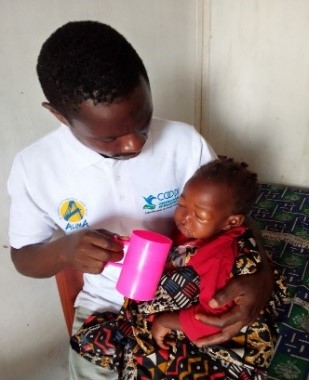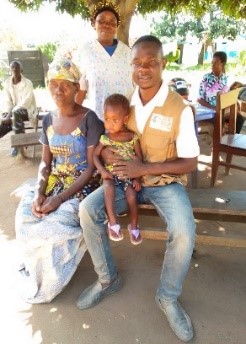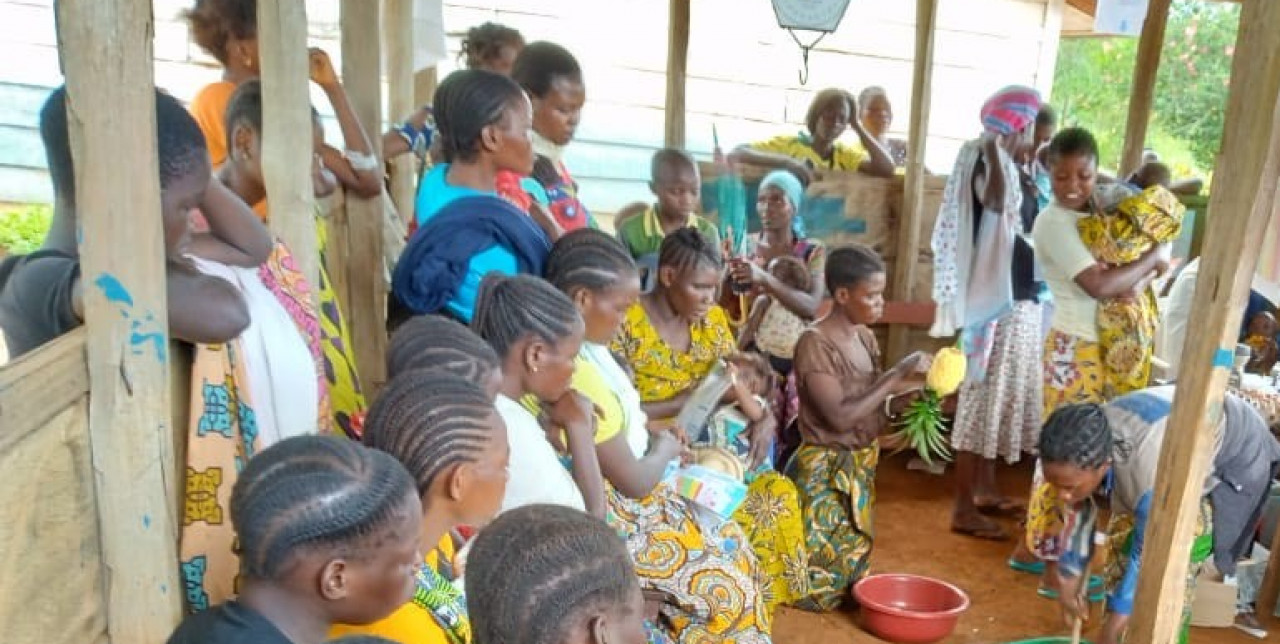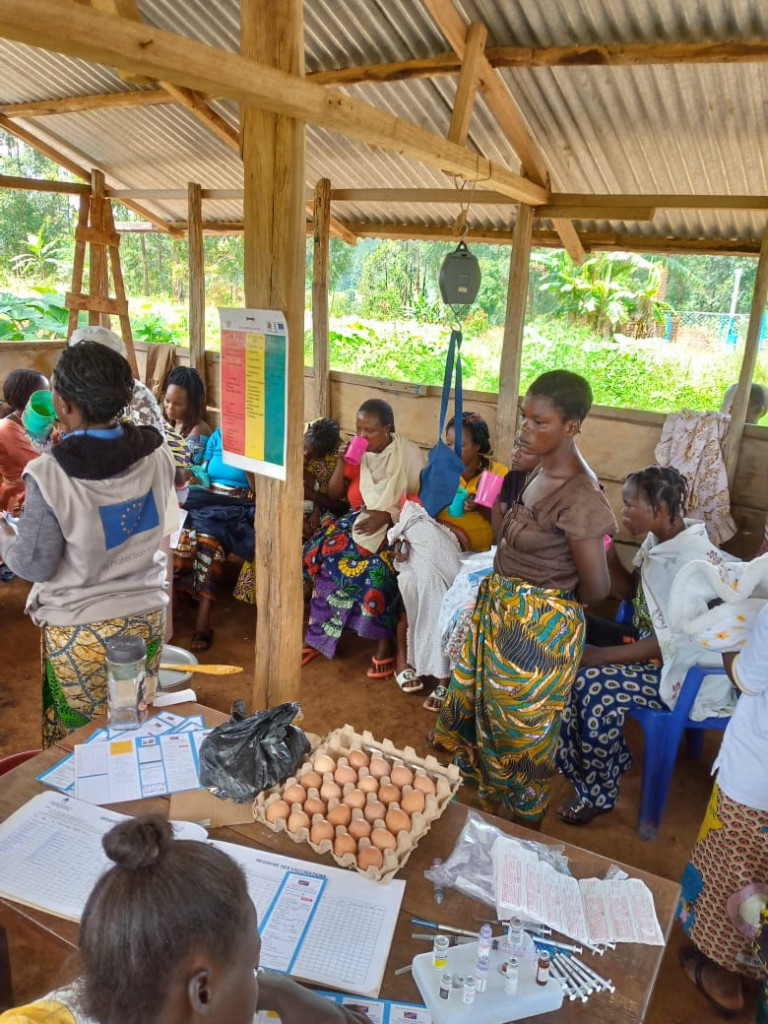06-02-2024 | di COOPI
Malnutrition in the Democratic Republic of Congo. Kalima survived
Kalima (fictitious name) is a 24 months old and a survivor. Thanks to the second phase of the project "Multisectoral integrated emergency assistance in health, nutrition, protection and WASH for the populations affected by the conflict in the health zones of Bambu and Mangala, in the territory of Djugu, in the province of Ituri" financed by ECHO (Humanitarian Aid of the European Union) today Kalima plays quietly on the patio of her grandmother's house while her family tells us how the intervention of COOPI – Cooperazione Internazionale and ALIMA saved her life.
Successive to a project of the same name implemented in the areas of Lita, Mangala and Rwampara, this project, carried out by COOPI from 1 May 2023 to 31 January 2024, differs from its predecessor in terms of the different areas of intervention and COOPI's multi-sectoral intervention. The special feature of this second phase is, in fact, in the integrated approach. COOPI is taking on not only the child protection and health of the population fleeing conflict as he did in the past, but also the malnutrition of two-year-old children whose lives are at risk.
There are four areas where COOPI and ALIMA have set goals. For ALIMA it is the health of the population, admitting more than 68,000 people for health consultations; access to water and proper management of aquifer waste, so that by the end of the activities more than 34,000 people will have drinking water and will be able to dispose of dirty water in a functional manner. On the strength of its experience in the country, COOPI will instead deal with protection, providing psychosocial support to 327 survivors of gender-based violence and adequate medical care to132 of them, and child malnutrition, taking care of 1,385 children suffering from malnutrition who will be treated in the nutritional units, while raising awareness of 6 thousand pregnant and lactating women on proper newborn nutrition.
Kalima is one of these children. The second child of Josef and Clairette (fictitious name), she fled with her family from the atrocities of an armed conflict, but just as her maternal grandmother welcomed them into her home in Mandje, her health began to deteriorate:
Being a widow and without job," she tells us, "our life became too difficult with so many people in the house. We had no money to buy food and ate nothing but cassava leaves and fufu, and that was when Kalima fell into malnutrition."
Kalima began alternating phases of poor appetite and diarrhoea, sometimes with severe vomiting, and suddenly stopped walking. The grandmother recalls the vain and multiple attempts to help her, not knowing where to turn and how to solve their financial difficulties:
I took Kalima to a local herbalist thinking she was poisoned, but he couldn't save her. We were very worried and didn't know what to do... Until one day the NGO ALIMA did an awareness-raising campaign in our neighbourhood urging us to do periodic 'do-it-yourself' malnutrition screenings for the children, and since that day everything has improved."

Kalima before the takeover
COOPI and ALIMA staff saw Kalima that day and, concerned about her condition, referred her family members to the health centre for malnutrition treatment in Mandje. Interventions such as these were necessary for the success of the project, so that so far 136 per cent of the children who participated in the health screening have in fact been taken care of and assisted in the 8 medical units provided.
In Mandje, after a visit, the nurse sent us to the health referral centre in Bbaya, where there was a sanitary unit and COOPI paid for the transport to take us to Bbaya by motorbike. When we arrived, the nurses reassured us that we would stay at the hospital until Kalima recovered."
Concurs the grandmother. Kalimais in good health today and her family sleeps soundly. Her story, like that of the other children helped during the project, has thus been transformed from a story of deep suffering into a tale of hope. Thanks to an admission rate of almost 98% and a drop-out rate of only 2%, the death rate has dropped to 0.1%.

Kalima après la prise en charge
Preventing and sensitizing the population is also the best strategy to combat malnutrition, which is why 33 cooking demonstrations were also organised in three health zones where various members of the community learnt how to prepare easily accessible, high-protein, local food mixtures: 377 men, 557 women and 1,461 women who are breastfeeding actively participated in these cooking demonstration sessions.
The areas of protection, nutrition and food security are COOPI's main focus of intervention in the country and its recognition is certified by the renewal of its mandate as co-facilitator of the national nutrition cluster. Over the past 30 years, COOPI has in fact considerably expanded its operations in response to the numerous crises that have destabilized the east, developing multi-year projects that lay the foundations for harmonious and sustainable development.




 Dem. Rep. of Congo
Dem. Rep. of Congo
